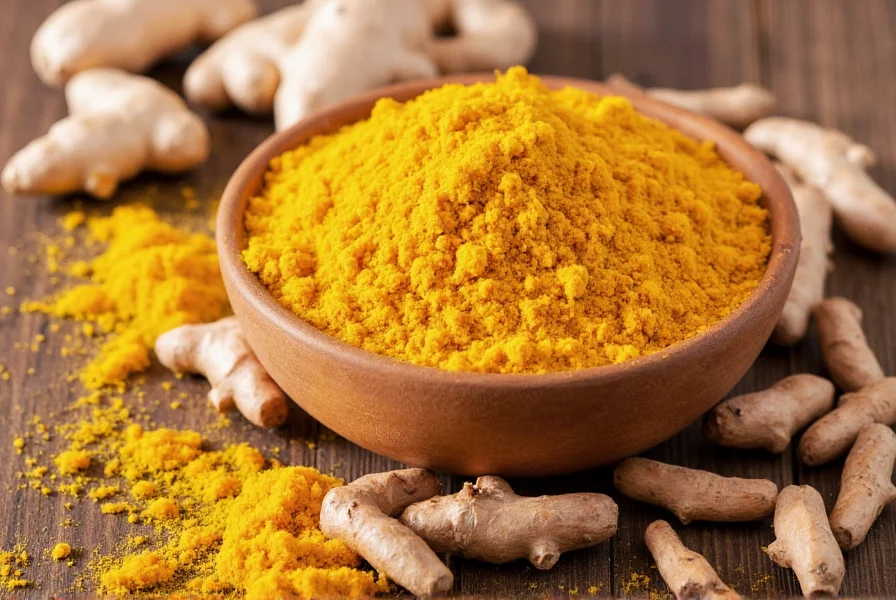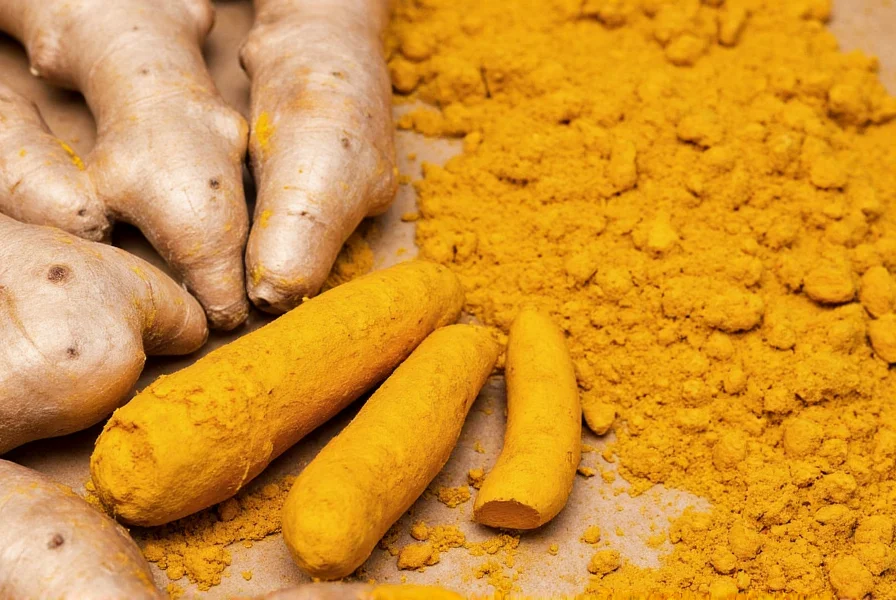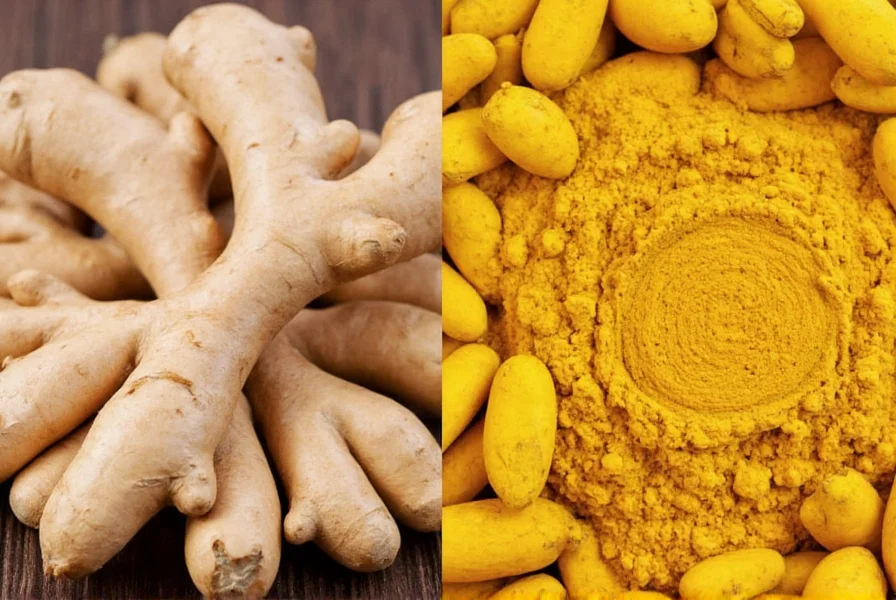The Science Behind Ginger and Turmeric
Modern research confirms what traditional medicine has known for centuries: ginger (Zingiber officinale) and turmeric (Curcuma longa) contain bioactive compounds with significant therapeutic potential. Ginger's primary active component, gingerol, gives the root its distinctive flavor and medicinal properties. Turmeric contains curcuminoids, with curcumin being the most studied compound responsible for its vibrant yellow color and health benefits.
These spices work through multiple biological pathways. Gingerol inhibits inflammatory cytokines and prostaglandins, while curcumin modulates over 700 genes and influences more than 160 pathways in the body. Their complementary mechanisms make them particularly effective when consumed together, creating what researchers call a synergistic effect for enhanced health outcomes.
Proven Health Benefits of Ginger
Ginger root benefits extend far beyond soothing an upset stomach. Clinical studies demonstrate its effectiveness for:
- Nausea relief: Particularly effective for morning sickness during pregnancy, chemotherapy-induced nausea, and motion sickness
- Muscle pain reduction: Regular consumption reduces exercise-induced muscle soreness by up to 25% according to research in the Journal of Pain
- Osteoarthritis management: Significantly reduces pain and stiffness in knee osteoarthritis patients
- Blood sugar regulation: Improves insulin sensitivity and reduces fasting blood sugar levels in people with type 2 diabetes
- Digestive support: Accelerates gastric emptying and reduces symptoms of functional dyspepsia

Science-Backed Turmeric Benefits
Turmeric's health benefits primarily stem from curcumin, though its effectiveness depends on proper absorption. Key evidence-based benefits include:
- Powerful anti-inflammatory effects: Curcumin matches some anti-inflammatory drugs without the side effects, making it valuable for chronic inflammatory conditions
- Brain health support: Increases brain-derived neurotrophic factor (BDNF), potentially delaying or reversing brain diseases and age-related cognitive decline
- Heart health improvement: Enhances endothelial function and reduces markers of heart disease risk
- Arthritis symptom relief: Multiple studies show significant improvement in pain and function for rheumatoid arthritis patients
- Potential cancer prevention: Affects cancer growth, development, and spread at the molecular level, though more human studies are needed
| Benefit | Ginger Effectiveness | Turmeric Effectiveness | Best Combined Approach |
|---|---|---|---|
| Inflammation reduction | Moderate | High | Use together with black pepper for enhanced absorption |
| Digestive health | High | Moderate | Consume before meals for optimal digestive enzyme production |
| Pain management | Moderate-High | High | Combine with healthy fats to increase bioavailability |
| Immune support | Moderate | Moderate | Daily consumption in cooking or as tea |
Maximizing Absorption and Effectiveness
Both spices face bioavailability challenges. Turmeric's curcumin has poor absorption on its own, while ginger compounds are rapidly metabolized. To maximize benefits:
- Pair turmeric with black pepper: Piperine in black pepper increases curcumin absorption by up to 2,000%
- Consume with healthy fats: Both compounds are fat-soluble, so pair with coconut oil, olive oil, or avocado
- Heat gently: Light cooking enhances bioactive compound availability without degradation
- Consider formulation: For therapeutic doses, look for standardized extracts with enhanced absorption technology
Practical Ways to Incorporate Into Your Diet
You don't need supplements to enjoy ginger and turmeric benefits. Simple daily practices include:
- Golden milk: Turmeric and ginger tea with warm milk (dairy or plant-based), black pepper, and a touch of honey
- Smoothie booster: Add 1-inch fresh ginger and 1/2 teaspoon turmeric powder to morning smoothies
- Stir-fry enhancement: Include both in vegetable or protein stir-fries with coconut oil
- Salad dressing base: Blend with olive oil, lemon juice, and a pinch of black pepper
- Roasted vegetable seasoning: Toss vegetables with olive oil, turmeric, ginger, and garlic before roasting

Important Considerations and Potential Side Effects
While generally safe as culinary spices, higher therapeutic doses require caution:
- Blood thinning effects: Both have mild anticoagulant properties; consult your doctor if taking blood thinners
- Gallbladder concerns: Ginger may increase bile production; those with gallstones should use caution
- Digestive sensitivity: High doses may cause heartburn or stomach upset in some individuals
- Medication interactions: May interact with diabetes medications, blood pressure drugs, and certain chemotherapy agents
- Pregnancy considerations: Culinary amounts are safe, but high-dose supplements should be avoided without medical supervision
For most people, incorporating these spices into daily cooking provides significant health benefits without risk. The American Herbal Products Association generally recognizes both as safe when consumed in typical food amounts.
Conclusion: Evidence-Based Integration for Optimal Health
Ginger and turmeric benefits are well-supported by scientific research, particularly for inflammation management, digestive health, and immune support. Their complementary mechanisms create a powerful natural approach to maintaining wellness when incorporated consistently into your diet. While not miracle cures, these spices represent valuable components of a holistic health strategy backed by both traditional wisdom and modern science. For therapeutic purposes beyond culinary use, consult with a healthcare provider to determine appropriate dosing and ensure safety with any existing conditions or medications.











 浙公网安备
33010002000092号
浙公网安备
33010002000092号 浙B2-20120091-4
浙B2-20120091-4